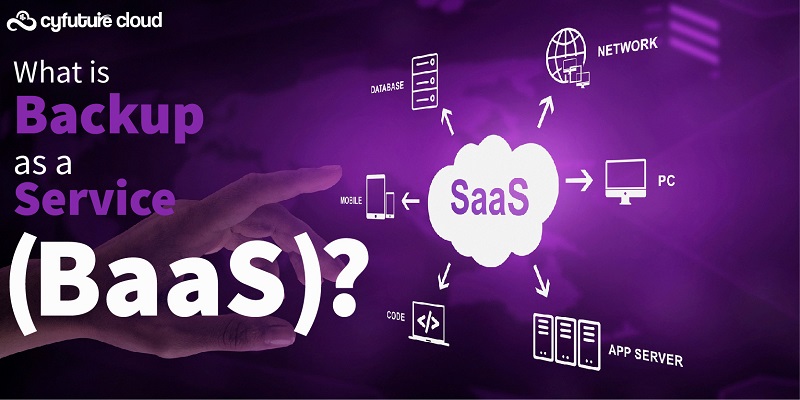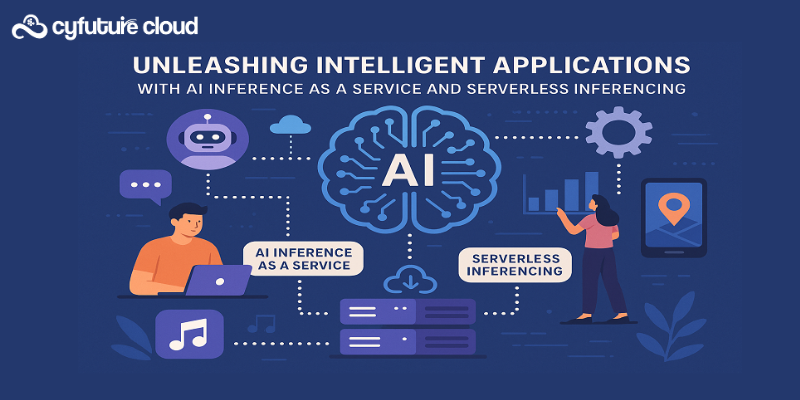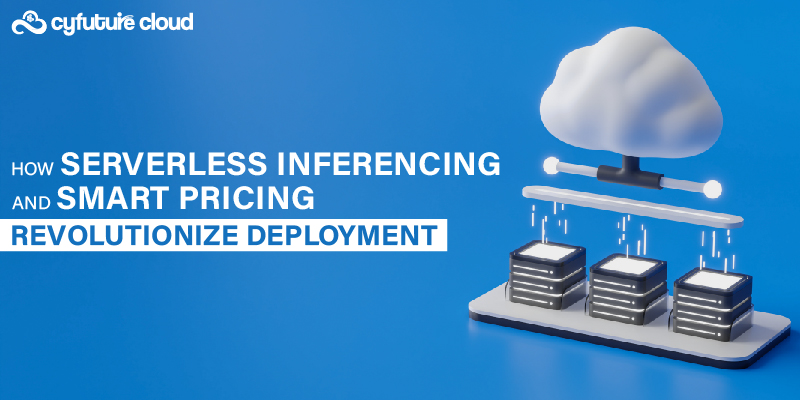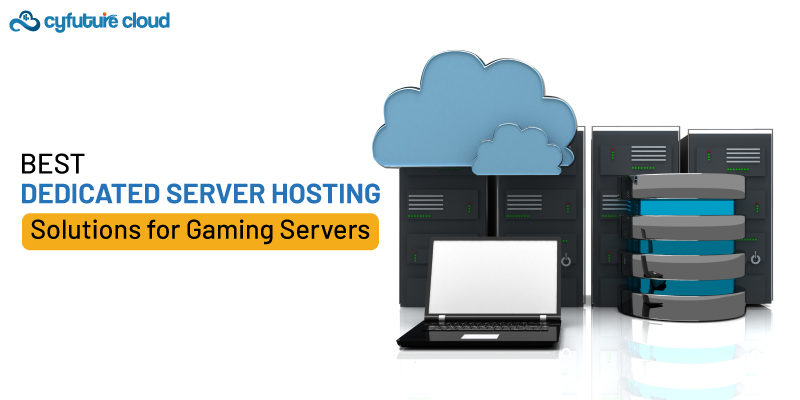Table of Contents
A significant section of the corporate community continues to function without cloud computing, despite data showing the business efficiency, cost-benefits, and competitive advantages it holds. Cloud computing has been available for around 20 years. In a research conducted by the International Data Group, 69% of organizations reported adopting cloud computing in some form presently, and 18% said they planned to do so in the future.
Meanwhile, according to Dell, businesses that invest in big data, cloud, mobility, and security grow their income up to 53% more quickly than their rivals. This data demonstrates how more and more technologically advanced companies and market titans are recognizing the many advantages of the cloud computing movement. However, they are more than that.
What is Cloud Computinghttps://cyfuture.cloud/cloud-computing
Cloud computing is a technology that enables individuals and organizations to access and utilize a wide range of computing resources and services over the internet. Instead of owning and managing physical servers and infrastructure, users can leverage remote data centers provided by cloud service providers. These resources can include servers, storage, databases, networking, and software applications. Cloud computing offers advantages such as scalability, cost-efficiency, flexibility, and accessibility, allowing users to pay for only the resources they consume. It has transformed the way IT services are delivered and has become a fundamental part of modern technology infrastructure.
Top 10 Advantages of Cloud Computing
1. Cost-cutting
You are not the only one if you are concerned about the cost of switching to cloud computing. The initial expense of adopting a cloud-based server worries 20% of organizations. However, those who are attempting to balance the benefits and drawbacks of using the cloud need to take into account more than just the initial cost; they also need to take ROI into account.
Once you’re using the cloud, quick access to your company’s data will let you launch projects more quickly and affordably. Additionally, the majority of CDN in cloud computing services are pay-as-you-go, allaying concerns that users may be forced to pay for features they don’t require or desire. This implies that if you don’t utilize the benefits of the cloud.
2. Safety
When it comes to implementing a cloud computing solution, many organizations are concerned about security. After all, how can you be sure that files, programs, and other data are protected if they are not housed securely onsite? What stops a cybercriminal from doing the same thing if you can access your data remotely? In reality, quite a bit.
One major advantage of a cloud host over a traditional in-house system is that security monitoring is their full-time job, which is far more effective than having to split their time between a variety of IT issues, security being only one of them.
3. Adaptability
There is a limited amount of attention available for your company to allocate among all of its duties. You won’t be able to focus on achieving company objectives and satisfying consumers if your present IT solutions need you to devote an excessive amount of your attention to computer and data-storage problems. On the other hand, if you rely on a third party to manage the IT hosting and infrastructure, you’ll have more time to focus on the areas of your business that have a direct impact on your revenue.
In general, using the cloud gives businesses more flexibility than cloud hosting on a local server. Additionally, a cloud-based solution may rapidly match your demand for additional bandwidth rather than requiring a complicated (and costly) update to your IT infrastructure. The overall effectiveness of your organization may significantly improve thanks to this increased freedom and flexibility. According to a survey by InformationWeek, “the capacity to quickly meet business demands” was cited as one of the top reasons a company should switch to a cloud environment by 65% of respondents.
4. Mobility
Given that there are currently over 2.6 billion smartphone users worldwide, cloud computing makes it possible for employees to access company data while on the go via smartphones and other mobile devices. This function allows employees with busy schedules or who reside far from the corporate headquarters to stay immediately in touch with clients and coworkers.
For a better work-life balance, you can provide easily accessible information via the cloud to mobile sales staff, independent contractors, or remote workers. Therefore, it should come as no surprise that businesses that prioritize employee satisfaction are up to 24% more likely to increase their cloud usage.
5. Insight
The old adage “knowledge is power” has evolved into a more accurate and modern form: “Data is money.” Buried within the millions of bits of data that surround your customer transactions and business process are nuggets of priceless, actionable information just waiting to be identified and acted upon. Of course, unless you have access to the appropriate cloud-computing solution, sorting through that data to discover these kernels can be very challenging.
For a birds-eye perspective of your data, several cloud-based storage options provide integrated cloud analytics. You may quickly deploy tracking systems and create customized reports to analyze information across your entire organization when your data is stored in the cloud. You can develop action plans to achieve organizational goals and boost efficiencies as a result of those findings. For instance, Sunny Delight, a beverage firm, used cloud-based business analytics to boost earnings by around $2 million annually while reducing employee costs by $195,000.
6. Enhanced Cooperation
If your company has two or more employees, you should give collaboration top attention. A team that cannot function as a unit makes little sense to have, after all. Collaboration is made simple via cloud computing. On a cloud-based platform, team members may see and exchange information quickly and securely. Some cloud-based platforms even give employees across your organization access to collaborative social areas, which boosts interest and engagement. Without a cloud computing solution, collaboration may be feasible, but it will never be as simple or as efficient.
7. Quality Assurance
Few things are as harmful to a company’s growth as poor quality and inconsistent reporting. All papers are kept in a single location and in the same format in a cloud-based system. When everyone has access to the same data, you can ensure data consistency, prevent human error, and keep a clear record of any additions or edits. Employees may unintentionally save multiple versions of documents when information is managed in silos, which can result in confusion and muddled data.
8. Disaster Reconstruction
Control is one of the elements that go into a business’s success. Unfortunately, there will always be factors beyond your organization’s control when it comes to its own operations, and in today’s market, even a tiny bit of useless downtime can have a pronouncedly negative impact. Your services’ downtime results in lost output, money, and brand reputation.
9. Loss Avoidance
All of your important data is inextricably linked to the workplace PCs it lives in if your company doesn’t invest in a cloud computing solution. Even though it might not seem like a concern, if your local hardware has a problem, you risk permanently losing your data. You might be surprised to learn that this is a more frequent issue. Computers can malfunction for a variety of reasons, including viral infections, aging-related hardware degradation, and simple user error.
10. Regular Software Updates
Nothing is more annoying for people with a lot to do than having to wait for system upgrades to be installed. Instead of requiring IT personnel to manually update the entire organization, cloud-based applications automatically refresh and update themselves. This helps to reduce the time and money wasted on outside IT consulting by IT professionals. According to PCWorld, 50% of cloud consumers identified using fewer internal IT resources as a benefit of the cloud.
Recent Post
Send this to a friend

 Server Colocation
Server Colocation CDN Network
CDN Network Linux Cloud Hosting
Linux Cloud Hosting Kubernetes
Kubernetes Pricing Calculator
Pricing Calculator
 Power
Power
 Utilities
Utilities VMware Private Cloud
VMware Private Cloud VMware on AWS
VMware on AWS VMware on Azure
VMware on Azure Service Level Agreement
Service Level Agreement 



















